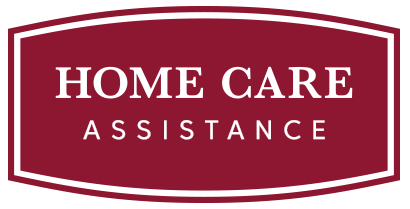How to Assist Your Elderly Parent with Handling Pain

Many seniors live with chronic pain and don’t seek any treatment for it, which can lead to mood changes, depression, and major changes in lifestyle. Older adults may assume pain is a natural part of the aging process, or they might not mention it out of fear of being burdens on their family members. Fortunately, if you have an aging parent who’s living with some type of pain, there are a few ways to help him or her address it.
Understand the Reason for the Pain
The first place to start is by learning why your parent is experiencing pain. Is it a symptom of an illness or condition, is it due to an injury, or is it something your loved one has lived with for a long time? For example, if your parent is overweight or obese, it may lead to knee or back problems. If your parent is diabetic, he or she may experience issues with neuropathy. A senior with arthritis may experience pain in the joints on a daily basis, while an older adult who sews or types frequently risks developing carpal tunnel syndrome. Getting to the root of the issue can guide you toward a practical solution for pain control and potentially curing the pain.
Hiring a professional caregiver is one of the best ways to help an older adult handle pain. If your senior loved one needs professional in-home care in Dallas, Home Care Assistance is here to help. We are a trusted provider of respite and 24-hour care, and we also offer specialized Alzheimer’s, dementia, Parkinson’s, and stroke care for seniors.
Monitor Medications
One of the quickest and easiest ways to address pain is by taking prescribed or over-the-counter medications. However, it’s important for seniors to take medications as prescribed by their physicians. Not doing so could interfere with the way the drugs work. If the pain medication doesn’t work, your loved one may be tempted to stop taking it or take a larger dose. Check in occasionally to make sure your loved one is taking his or her medications as directed.
Use Distractions
Using distractions can take your loved one’s mind off pain and help him or her live a happy and fulfilling life. When your loved one is in pain, encourage him or her to do something entertaining, such as watching a TV show or reading a book. Take your loved one out to dinner or sign up for a class to learn a new hobby together. Simply relaxing and not thinking about it can work wonders for some types of pain.
Engaging in regular socialization is a good way for older adults to take their minds off pain. For families living in Dallas, respite care can be a wonderful solution when their aging loved ones need companionship and socialization a few hours a week or just need minor assistance with daily household tasks. At Home Care Assistance, we thrive on helping seniors maintain their independence while living in the comfort of home.
Promote Physical Activity
Swimming, yoga, stretching, walking, and weight training are all exercises that may alleviate pain. Exercise also relaxes the body, which may serve as yet another way to distract your loved one from the pain he or she feels. Encourage your loved one to exercise by joining him or her for a walk or swim or finding an activity he or she has always wanted to try.
Look for Alternative Therapies
Acupuncture, physical therapy, massage therapy, hypnosis, and hot and cold therapy are all used to treat pain in older adults. If your loved one is hesitant to take medication or feels medication doesn’t work, it may be time to look into alternative therapies. Talk to your parent’s doctor about how these therapies may benefit your loved one.
Chronic pain is among the many health issues older adults are susceptible to. There are a variety of age-related health conditions that can make it more challenging for seniors to live independently. However, many of the challenges they face can be easier to manage if their families opt for professional elder care. Dallas families can rely on expertly trained caregivers to keep their loved ones safe and comfortable while aging in place. Trust your loved one’s care to the professionals at Home Care Assistance. Reach out to one of our compassionate Care Managers today at (214) 363-3400.

